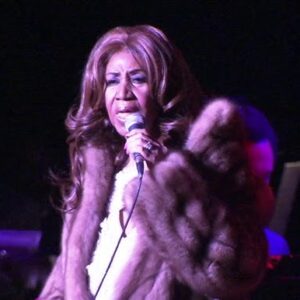Mary J. Blige is not just a singer; she is a cultural phenomenon, an icon whose legacy is forever intertwined with the fabric of R&B, soul, and hip hop music. With a career spanning over three decades, Blige has carved a space for herself not only as a talented vocalist but also as a symbol of resilience, empowerment, and evolution. Her influence stretches far beyond the charts, having shaped the soundscape of contemporary music and set new standards for how women in music express themselves. From her early days as a young girl with a dream to the powerhouse she is today, Mary J. Blige has continuously pushed boundaries in both her music and her life.
The Rise of a Star
Mary J. Blige’s story is one of triumph over adversity, of turning personal struggles into a tool for musical greatness. Born on January 11, 1971, in the housing projects of Yonkers, New York, Blige grew up in an environment fraught with challenges, from a turbulent family life to the harsh realities of inner-city living. Yet, she channeled her pain and experiences into her music, which became a reflection of her raw emotions, vulnerability, and strength.
Her debut album, What’s the 411? (1992), marked the beginning of her meteoric rise to fame. Produced by the legendary Sean “Puffy” Combs, it blended classic R&B with the burgeoning sound of hip hop, and featured the iconic tracks “Real Love” and “You Remind Me.” It was clear from the outset that Blige was not just another artist; she was a force to be reckoned with, someone whose music could speak to the soul while keeping pace with the evolving sounds of the 90s.
As her career progressed, Blige’s voice became synonymous with heartache, healing, and empowerment. Her unique blend of powerful vocal ability, introspective songwriting, and an unapologetically raw approach to life set her apart from her contemporaries. She wasn’t just singing songs; she was telling stories—stories of triumph, struggle, love, and loss that resonated deeply with listeners. This authenticity has kept Blige at the forefront of the music industry for decades.
Mary J. Blige’s Notable Award Show Appearances
Mary J. Blige’s journey through the award show circuit has been nothing short of remarkable. From the very beginning of her career, she established herself not just as a chart-topping artist but also as a captivating live performer whose presence could command any stage. Her first major award show appearance came at the 1993 MTV Video Music Awards, where she performed her hit “You Remind Me.” The performance was a clear indication of Blige’s potential to become an international superstar. She was young, fierce, and unapologetically herself—a characteristic that would define her career moving forward.
As her career progressed, so did her presence at major award shows. The Grammys were a stage where Blige made her mark early on, earning her first nomination for Best R&B Vocal Performance, Female for “Real Love.” Though she didn’t win that night, her recognition was just the beginning of what would be a string of accolades in the years to come. Every performance at the Grammys and Billboard Music Awards became an event in itself, with Blige consistently showing her versatility and power as a live performer. Her performances were marked by emotional intensity and a palpable connection with the audience, proving that she wasn’t just a singer—she was an artist who could speak to the soul.
One of her most notable early performances came in 2001 at the Grammys, where Blige delivered an unforgettable rendition of “No More Drama,” a song that was as much about overcoming personal struggles as it was about artistic triumph. The emotion she conveyed in that performance was a testament to the deep connection between her music and her life experiences. It was a moment that further solidified her status as one of the most important figures in contemporary music.
Mary J. Blige’s Award Wins Over the Years
Mary J. Blige’s trophy collection is nothing short of impressive, with awards spanning the spectrum of music accolades. She has earned multiple Grammy Awards, BET Awards, American Music Awards, and many others, becoming one of the most decorated artists of her generation.
One of the most significant milestones in Blige’s career came in 1995 when she won her first Grammy Award for Best R&B Vocal Performance, Female for “I’m Goin’ Down.” This win was just the beginning of a long history of Grammy recognition, which included wins for Best R&B Album, Best Female R&B Vocal Performance, and Best R&B Song, as well as nominations for major categories like Album of the Year and Song of the Year. Over the years, Blige’s influence within the industry became undeniable, and her wins at the Grammys marked not just personal achievements but also milestones for the genre of R&B.
In 2012, Blige achieved another historic moment by becoming the first woman to ever receive the BET Honors Award for Music. Her success at the BET Awards—where she has won multiple trophies, including the prestigious Best Female R&B/Pop Artist Award—further solidified her position as one of the most influential artists of her time. Perhaps one of her most groundbreaking moments came in 2018 when she earned two Academy Award nominations for her role in Mudbound—one for Best Supporting Actress and another for Best Original Song for “Mighty River.” With this, Blige became the first person ever to be nominated for both an acting and music Oscar in the same year. This accomplishment speaks volumes about her multifaceted talent and her place in both the music and film industries.
Fashion and Style at Award Shows
Beyond her music and acting, Mary J. Blige has been a fashion icon, known for her bold choices and ability to transform the red carpet into her own personal runway. Her style evolution is as noteworthy as her musical career, as she continuously redefines what it means to be a woman of power and grace in the public eye.
In the early years of her career, Blige’s fashion was an extension of her urban roots, often incorporating oversized jackets, baggy pants, and streetwear. This look resonated with her audience and reflected the raw, unfiltered nature of her music. However, as her career progressed, so did her style. Blige began to experiment with more glamorous looks, often turning heads at major award ceremonies with high-fashion gowns, daring cuts, and statement accessories.
Her red carpet moments became highly anticipated, with her effortless ability to combine elegance with street style. Whether it was a sleek black dress at the Grammys or a vibrant gown at the Oscars, Blige’s fashion choices always made an impact. Her style was, and continues to be, a powerful representation of her journey—reflecting her growth from a young artist with a raw edge to a sophisticated and polished icon.
The Cultural Impact of Her Achievements
Mary J. Blige’s influence extends far beyond her chart-topping hits and award wins. As an African American woman in an industry often dominated by men, Blige broke barriers and proved that women of color could achieve both commercial and critical success in multiple arenas. She has been a trailblazer for female empowerment in music, with her songs about love, heartbreak, and self-reliance resonating with millions of people around the world.
Her music, filled with honesty and vulnerability, provided a soundtrack to the lives of many fans who found solace in her words. But Blige’s cultural impact isn’t limited to her music—she has used her platform to advocate for change and speak out on issues of social justice, including racism, gender inequality, and the struggles of inner-city communities. In many ways, her career is a reflection of the cultural and social shifts that have taken place over the past few decades, and her impact on these conversations cannot be overstated.
At award shows, Blige’s speeches and performances have often carried messages of strength, resilience, and love. Her moments on stage have been as much about her artistic achievements as they have been about her contribution to the broader cultural dialogue. Whether she’s accepting an award or delivering a powerful performance, Blige consistently uses her platform to remind us of the power of self-expression and the importance of remaining true to oneself.
Legacy and Continued Success
Despite a career that spans more than 30 years, Mary J. Blige shows no signs of slowing down. Her continued relevance in the music and entertainment industries speaks to her enduring appeal and the timeless quality of her artistry. From chart-topping albums to acclaimed acting roles, Blige’s work continues to resonate with fans old and new.
Her recent album My Life II… The Journey Continues (2011) and subsequent tours have kept her in the spotlight, while her role in Mudbound proved that her talents extend far beyond music. She has remained an active and influential figure in pop culture, earning respect from fellow artists, critics, and fans alike.
Mary J. Blige’s legacy is one that will be remembered for generations. She has not only transformed the landscape of R&B and hip hop but has also proven that women, especially women of color, can command the spotlight and leave a lasting impact. As she continues to create, perform, and inspire, Blige remains a testament to the power of perseverance, the importance of authenticity, and the undeniable influence of art in shaping culture.
Her career trajectory is a blueprint for what it means to be a true artist—one who adapts, evolves, and remains unafraid to show the world who they truly are. In an era where musical icons come and go, Mary J. Blige stands as a monument to resilience, talent, and the enduring power of music.





